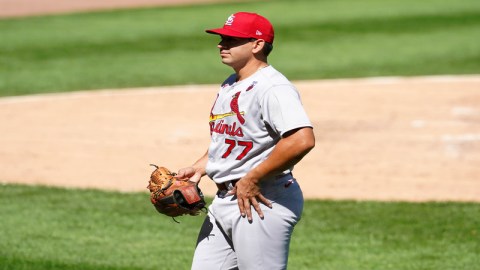 Wealthy athletes and charitable causes seem to go naturally hand in hand. But some athletes’ charitable ventures reportedly lack stringent enough standards to make sure money is going where it’s supposed to go.
Wealthy athletes and charitable causes seem to go naturally hand in hand. But some athletes’ charitable ventures reportedly lack stringent enough standards to make sure money is going where it’s supposed to go.
ESPN’s Outside the Lines is reporting that of 115 charities founded by high-profile, top-earning athletes, 74 percent of the nonprofits didn’t live up to acceptable nonprofit operating procedures.
Lamar Odom‘s charity, Cathy’s Kids, apparently hasn’t donated a penny toward cancer research since its inception.
If you’re trying to call Randy Moss‘ charities, expect to reach a private residence in the Canadian province of Manitoba.
Alex Rodriguez‘s charities stopped filing tax returns about five years ago, leaving almost $300,000 from a fundraiser unaccounted for.
Odom started Cathy’s Kids in 2004, after losing his mother to cancer. An honorable venture, no doubt, but it seems close to $1.3 million raised under the Cathy’s Kids name has gone to fund two AAU basketball teams. The charity’s 2011 tax returns show it’s $256,000 in debt, mostly stemming from a loan Odom made to the charity, according to Outside the Lines.
The charity was able to pay its secretary, Jerry DeGregorio, now an assistant coach with the Golden State Warriors, a salary of $72,000, while the charity itself operated at a loss.
When approached by Outside the Lines with questions about the expenses surrounding his charity, Odom “repeatedly responded by saying, “It’s my money,” and refusing to explain any further,” according to the report.
“A charity, as a tax-exempt organization, is a public entity, and therefore it has a responsibility to the public. We give them nonprofit status because that organization is supposed to be giving back to society in some way, shape or form,” Andrew Bondarowicz told Outside the Lines. Bondarowicz runs the Aregatta Group, which, among other tasks, advises athletes on how to be charitable.
“It’s not meant to be someone’s personal slush fund and a way for them to spend money for their own private purposes,” he said.
Overall, athletes seem unwilling to answer questions about the details of their charitable ventures, but they have the ability and responsibility to do better.



